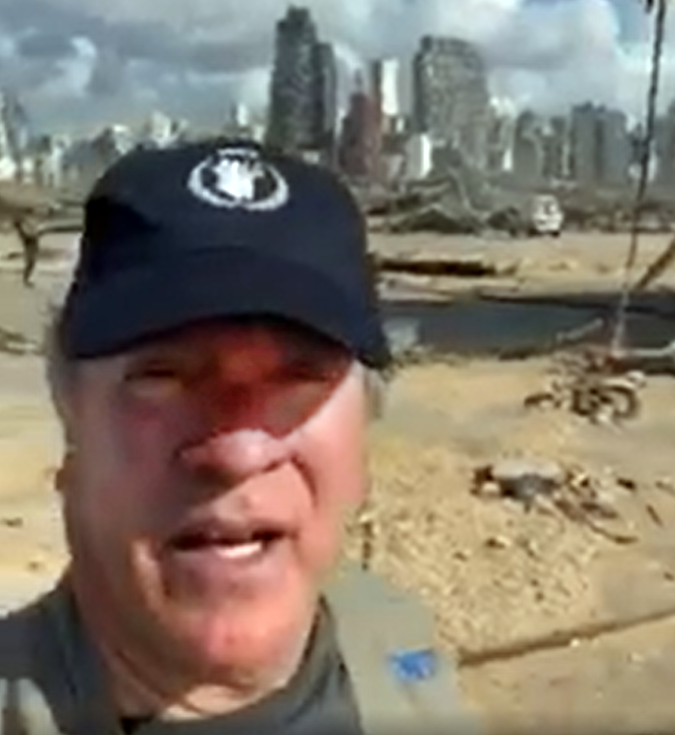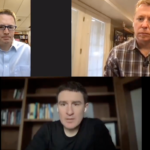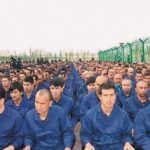 [1]
[1]ROME (BP) – David Beasley was in a World Food Programme meeting in Niger, West Africa, when a team member came in and simply said “the Nobel Peace Prize.”
“Wow, who got it?’ Beasley asked.
“We did,” the staffer replied.
“Oh, my goodness,” the stunned executive director of the World Food Programme said, adding an enlivened “Wow.”
Beasley, a former governor of South Carolina and Southern Baptist church member when he was in the statehouse, has led the United Nations agency since 2017, recommended for the five-year term by President Trump.
The Norwegian Nobel Committee, in announcing the prize Oct. 9 in Oslo, noted, “In the face of the [COVID-19] pandemic, the World Food Programme has demonstrated an impressive ability to intensify its efforts.”
The committee commended the world’s largest humanitarian organization for “bettering conditions for peace in conflict-affected areas and for acting as a driving force in efforts to prevent the use of hunger as a weapon of war and conflict.”
 [3]
[3]“The World Food Programme was an active participant in the diplomatic process that culminated in May 2018 in the UN Security Council’s unanimous adoption of Resolution 2417, which for the first time explicitly addressed the link between conflict and hunger,” the Nobel Committee stated. “The Security Council also underscored UN Member States’ obligation to help ensure that food assistance reaches those in need, and condemned the use of starvation as a method of warfare.”
Bryant Wright, president of Southern Baptists’ Send Relief compassion ministry, said, “I congratulate the World Food Programme, and especially David Beasley who has provided such great leadership there. They are able to meet hunger needs around the world especially in places that are difficult to reach.
“In the conversations we’ve had with him by Zoom in the last few weeks about hunger challenges around the world, he is obviously a dedicated Christian and was excited to know that Southern Baptist Christians are eager to be of help through Send Relief.”
Wright added: “We have the privilege of doing it in the name of Jesus.”
Beasley, in speaking to PBS NewsHour, said the Nobel Peace Prize serves as “a call to action.”
“… Just in the last three years, the number of people on the brink of starvation had risen before COVID from 80 million to 135 million,” Beasley said. “And now with COVID, the number of people – and I’m not talking about people going to bed hungry – on the brink of starvation is now 270 million people.
“… We’re facing the worst humanitarian crisis since World War II.”
Beasley said the Rome-based WFP needs “an extra $5 billion to save millions of lives around the world.” He called particularly on billionaires “to step up. … With all the wealth in the world today, no one should be dying from hunger, not a single person.”
So far in 2020, the WFP has received nearly $6.4 billion in funding or donated goods, with over $2.7 billion coming from the U.S., The Associated Press reported.
Pressing hunger crises exist in such countries as Yemen, South Sudan, Syria, Lebanon and Iraq, Beasley said, “and where I am right now in Niger and the Sahel [region below the Sahara], where millions of people have been impacted because of climate extremes compounded by extremist groups that are coming in and exploiting the situation – and now COVID on top of that.”
Where COVID-fueled hunger is intense, Beasley said, “three things are going to happen. One, you’re going to have famine, I mean literally of biblical proportions. Two, you’re going to have destabilization. And three, you’re going to have mass migration.
“We can solve all that. We have a cure against starvation: It’s called food. We need money to get it to the people that need the help. If we don’t, we’re going to pay for it a thousand-fold more with the problems that result from the lack of security, because when you have food insecurity, you have destabilization, wars, conflicts and migration.”
‘Lives on the line’
Beasley told AP, “I’m not deserving of an award like this – but all the men and women around the world in the World Food Programme and our partners who put their lives on the line every day to help those in need – that is inspiring and encouraging.”
To staffers in Niger, he said, “I didn’t win it; you won it.”
Worldwide, the WFP has 17,000 staff members, with some 5,600 trucks, 20 ships and 92 planes on the move daily.
Founded in 1961 at President Dwight Eisenhower’s initiative, the WFP provided assistance in 2019 to nearly 100 million people in 88 countries, creating emergency delivery operations for many of the world’s most dangerous and precarious places after pandemic restrictions grounded commercial flights. Among its large-scale responses over the years were Ethiopia’s famine of 1984, wars in the former Yugoslavia in the 1990s, the Asian tsunami of 2004 and the Haiti earthquake of 2010.
“The Nobel Peace Prize is not the UN World Food Programme’s alone,” Beasley said in a statement on the WFP website. “We work closely with governments, organizations and private sector partners whose passion for helping hungry and vulnerable people equals ours. We could not possibly help anyone without them. We are an operational agency and the daily work of our staff each day is driven by our core values of integrity, humanity and inclusion.”
On Instagram, Beasley posted from Lebanon a week after the Aug. 4 ammonium nitrate explosion in the port of Beirut that killed more than 200 people and left thousands homeless. “At just two kilometers from the blast site, this is a @worldfoodprogramme distribution that we visited today,” he reported. “Behind me, you’ll see food parcels for families affected by last week’s terrible events, as well as a few of our partners who helped us make this possible, such as Australia, Canada, Ireland and the USA. We’re incredibly grateful to all of our donors who have stepped up & everyone who has given to our online appeals so far. When we work together, we can make a difference.”
Prior to assuming his WFP position in 2017, Beasley had been chairman of the board of the Center for Global Strategies, a nonprofit organization in Greenville, S.C., which he co-founded in 2005 with Henry Deneen, who served as chief legal counsel to Beasley as South Carolina’s governor and subsequently earned a graduate degree from Gateway Seminary in California.
With work in about 10 countries in Asia, Africa and Europe, the Center for Global Strategies sets forth a vision statement “to see a world connected to the global marketplace through personal, trusting, cross-cultural relationships, building peace and increasing understanding through these business and marketplace initiatives.”
Beasley was a 1999 fellow of the Institute of Politics at Harvard University’s Kennedy School of Government.
After his 1995-1999 term in office, Beasley lost to a Democrat who received heavy financing from the state’s video poker industry – which Beasley had sought to curtail.
In 1996 after several incidents of racial violence, Beasley was the first governor in South Carolina to make a public push for the legislature to remove the Confederate battle flag from the capitol’s dome, where it had flown beneath the American and state flags since the early 1960s. His stance was recognized with the John F. Kennedy Profile in Courage Award in 2003. The legislature voted in 2000 to relocate the flag to a Confederate memorial on the statehouse grounds.
While he was governor, South Carolina became the first state in the nation to ban the partial-birth abortion procedure. He initiated a welfare reform program that led to a 60 percent caseload drop, strengthening support of families and empowering individuals “to be self-sufficient and independent and not dependent on government, so that the government would no longer be their god.”
At the age of 20, he ran for the South Carolina House of Representatives, serving from 1979-1992, rising to majority whip and later majority leader and speaker pro tempore.
In Columbia, Beasley and his wife Mary, who have two daughters and a son, were members of Shandon Baptist Church.







